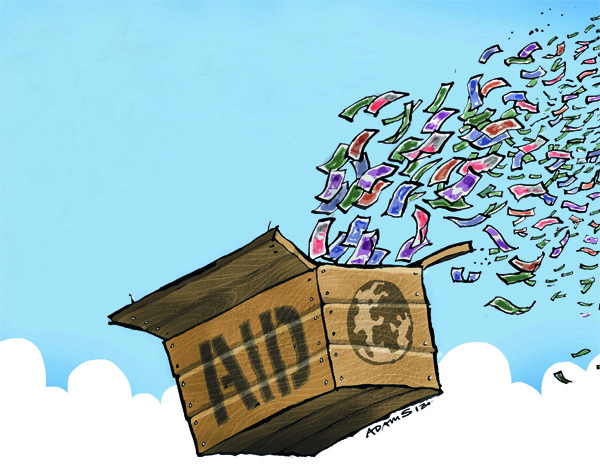Burning Money: The Economic and Environmental Toll of Cigarette Consumption

Shloka Satish
29 January 2025
Earth Relies on Two Aspects
Economic prosperity and Environmental well-being are considered to be celestially vital. Without either, our world as we know it would spiral downwards into a land of despair and destruction, riddled with poverty, fear, and ecological ruin. Hence it would seem unlikely that a simple object could hinder the growth of these two fundamentally paramount aspects. Nevertheless, this is not the case…
The Infamous Cigarette
Slowly but surely, cigarette consumption is drastically harming the world and its inhabitants. However, its dangers are overshadowed by the myriad of other problems looming over us today. Therefore, we need to recognize that these cigarettes are creating an extreme economic and environmental toll. It’s the equivalent of burning money: fumes degrade the air, and good money is scorched beyond retrieval. This article will explore how cigarettes negatively impact the employment rate, the healthcare industry, and the environment.
Smoking kills… the employment rate
Did you know that there is a 23% gap in the UK’s employment rate between smokers and non-smokers for 45-49-year-olds? Moreover, a meta-analysis of 29 longitudinal studies of the relationship between smoking and work absenteeism concluded that smokers were 33% more likely to be absent from work. These massive numbers result from the fact that smoking contributes to more illnesses and time spent on smoking breaks at work; many organizations today have also adopted strict non-smoking policies, and they are discouraged from employing smokers to better align with their workplace culture.
Imagine if smoking were to stop completely, one may argue that this would be a major problem due to job losses in the tobacco industry. However, research shows that the employment rate would likely rise in the long term due to health and productivity gains, and such temporary job losses could be mitigated with effective policies and retraining programs, enabling the economy to shift toward more sustainable sectors. For example, in Thailand, the government had successfully regulated tobacco production and distribution and introduced crop diversification programs to support farmers transitioning from tobacco cultivation.
The Cost Paid by the Healthcare Industry
Smoking arises a major cost to the healthcare industry. Did you know that in the United States, smoking created $240 billion in healthcare spending? This is because smoking contributes to a myriad of diseases including but not limited to lung cancer, chronic obstructive pulmonary disease (COPD), and heart disease, all of which place a significant financial burden on healthcare systems. Additionally, more than 50% ($120 billion) of smoking-attributable healthcare spending is funded by Medicare or Medicaid, indicating a substantial burden on public health programs. Hence, we must reduce smoking to aid the healthcare industry and reduce the strain on it. A research study from UC San Francisco concluded that a 10% decline in smoking prevalence in the U.S. could lead to an estimated $63 billion reduction in total national healthcare costs within the following year.
The Environmental Toll
Now that we have established the economic toll of smoking, let’s explore the negative effects smoking has on the environment. To produce a cigarette, there are numerous stages, all of which pose serious environmental consequences. Tobacco farming is noted as a major cause of deforestation, with around 200,000 hectares of forests and woodlands removed annually. It also uses fossil fuels and involves dumping or leaking waste products into the natural environment. Post consumption, cigarette butt littering is both a public nuisance and on a deeper level, exerts hazardous and toxic effects on the environment and ecosystems where they end up.
Disregarding the Faults
Despite the plethora of costs arising from smoking, there are a few benefits brought along with it. Tobacco farming provides livelihoods for millions, especially in developing countries like Malawi, which in 2024, generated $396.28 million, despite a challenging drought. Governments also collect substantial revenue through tobacco excise taxes. For instance, in the United States, federal and state cigarette taxes generate billions annually and such funds are often allocated to public services such as the healthcare sector. However, we must remember that if smoking did not negatively impact the healthcare sector, to begin with, this extra funding would not be necessary. We must also note that in the long run, unemployment resulting from reduced smoking can be resolved and workers can be shifted to more environmentally and economically friendly areas. Hence, one cannot disregard the few positive aspects of smoking, however, an error arises from using such positives as an ‘excuse’ to smoke, especially seeing as the costs greatly outweigh the benefits.
Quitting this Quagmire
It is imperative that we resolve the threatening issue of cigarette consumption and this can be difficult due to its addictive nature and since bounded rationality leads people to overlook cigarette risks for immediate satisfaction. Nevertheless, to quit smoking, one should be informed of the various disadvantages of smoking. Secondly, if you know someone who smokes, you should support and inform them of the various techniques to quit cigarette consumption. This includes Nicotine replacement therapy, Prescription medications, and mobile apps such as “Quit Genius” or “SmokeFree’’. Only after everyone works together to reduce cigarette consumption one can observe how a world free of smoking can restore our environment and enhance our economy.
Are you curious to learn more about the economic and environmental impacts of cigarette consumption? Visit the sites below!






Leave a Reply
You must be logged in to post a comment.